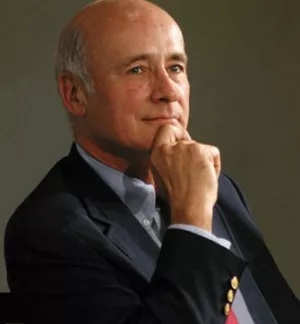Global terrorism is not new. A century ago, the anarchist movement killed a half-dozen heads of state for utopian ideals. Four decades ago, the red brigades hijacked and killed across borders. Just recently there have been attacks in London, Bali and Madrid — allegedly for utopian goals. Today's jihadist extremists are a political phenomenon wrapped in religious dress. Many of their leaders are not traditional fundamentalists, but people whose identities have been disrupted by globalisation and who are searching for identity in the imagined community of a pure Islamic caliphate. This too is familiar to students of earlier terrorist movements. What is new is the terrorists' use of technology, particularly the internet, and policymakers have yet to fully understand the phenomenon.
In 1900 and 1970, it was possible to have instantaneous global communications, but the capability was restricted to large organisations with large budgets: governments, multinational corporations or the Catholic church. Today, that capability is available to anyone in an internet café, anywhere. The west sees itself as leader of the information revolution, but the democratisation of technology enables terrorists to close the gap. Insurgents in Iraq are using improvised explosive devices they learnt to build via the internet. They have delivered more precision munitions on their targets than the American military has on them.
This generation of terrorists is also adept at using technology to increase its "soft power". The current struggle is not only about whose army wins, but also whose story wins. Repeated polls show that Osama bin Laden in his cave has communicated more effectively than America or Britain have despite their massive budgets for public diplomacy. Jordan and Pakistan are front line states in George W. Bush's war on terror, but polls show far more people saying they trust Mr bin Laden than the US president.
When the Aspen Strategy Group of political leaders, officials and academics met last summer in Colorado to discuss ways to counter jihadi terrorism, many found the most stunning presentations dealt with the internet skills of the new generation of extremists. Mr bin Laden may have been adept with hand-held cameras and cassettes, but Abu Musab al-Zarqawi's generation goes directly to the internet for instantaneous distribution. No smuggling across borders needed — and therefore less chance of getting caught.
Terrorism is about theatre and a competition for audience. In May 2004, the shocking video of Mr al-Zarqawi decapitating Nicholas Berg was downloaded millions of times on the internet and stimulated copycat beheadings by other groups. No longer is recruitment limited to physical locations such as mosques and jails. Instead, alienated individuals in isolated places can join a new community of fellow believers around the world. The number of jihadist websites is reported to have grown from a dozen in the late 1990s to more than 4,500 today. Such websites not only recruit; they also train. Of course, such websites can be monitored and eventually shut down, but the cat and mouse game between intelligence and terrorist is a close one. Developing linguistic and personnel skills to monitor the vast traffic on the internet is difficult. Even then, some terrorist messages can be disguised in code or hidden through multiple accounts.
What can we do? The first step is for the generation of policymakers not raised with the internet or cell phones to become more aware of the changing nature of the threat and increase investment in monitoring and surveillance. One nation acting alone will not be enough. Democratic leaders must use soft or attractive power to disseminate a positive narrative about globalisation and the prospects for a better future that attracts moderates and counters the poisonous jihadist narratives on the web. Fortunately, we have a credible story to tell.
Jihad is not one of the five pillars of Islam, and violence against civilians and children identifies the terrorists as a morally corrupt minority. We also need to deliver on promises by following up with policies such as educating girls, providing jobs for young men, increasing political participation, working to resolve local conflicts that fuel alienation, and living up to our own values as we conduct this struggle. After all, public diplomacy, including a greater effort on the internet, can only be as good as the policies that underlie it. In the long term, the internet is a technology of freedom. We must do better to seize that advantage.
The writer is a professor at Harvard and author most recently of The Power Game: A Washington Novel
Nye, Joseph. “How to Counter Terrorism's Online Generation.” Financial Times, October 13, 2005


